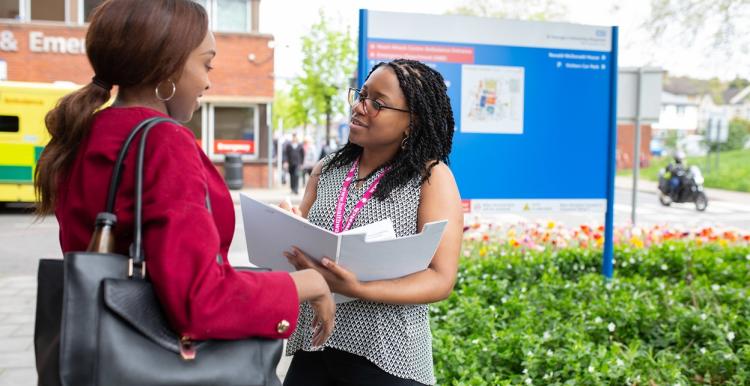Healthwatch Rutland Highlights Urgent Need for Improved NHS Communication

Effective communication is the backbone of quality healthcare, yet in our recent study, many patients report frustration and stress caused by administrative inefficiencies and poor communication within the NHS.
In recent research conducted by Healthwatch Rutland many people told us they are unhappy with their experiences of NHS communication and administration processes, especially when moving between services along care pathways. Our report highlights significant communication gaps that impact patient well-being, alongside practical recommendations for enhancing NHS communication and administration.
In total, 130 Rutland people shared their experiences. Feedback was gathered through a survey, though individual interviews and from talking to people at outreach and engagement events.
The key findings of the research are available in our report Patient experiences of NHS communications and administration
Key Challenges in NHS Communication
- Patients expressed frustration that communication preferences are not always considered. While some prefer letters, others favour emails or text messages. A key concern was the inability to respond to NHS text messages, limiting two-way communication.
- Inconsistent experiences across services. While some NHS departments excel in communication, others struggle with delays, misinformation, and administrative errors. This inconsistency leads to confusion and stress for patients.
- Difficulty accessing General Practice services. Many patients find it challenging to contact their GP, facing long wait times, unhelpful responses from care navigators, and limited appointment availability. There is a lack of awareness or confidence in using online consultation systems.
- Issues with Urgent and Emergency Care. People reported difficulties locating loved ones admitted to hospitals via ambulance and confusion about accessing minor injuries or urgent care services.
- Hospital communication failures. Patients waiting for treatment often receive few or no updates about their status, leading to anxiety and frustration. Issues with appointment scheduling, lost referrals, and test results not being shared in a timely manner further contribute to patient dissatisfaction.
- Medication management problems. Delays in receiving medications, gaps in communication between hospitals and GP practices, and pharmacies failing to notify patients when prescriptions are ready, create risks for patient safety.
- Challenges for patients with disabilities. People with disabilities often experience additional barriers, such as inaccessible communication formats and a lack of support when navigating NHS services.
- Lack of clear complaints processes Many patients are unaware of how to formally complain about communication failures or fear that doing so may negatively impact their care.
The Impact of Poor Communication
Patients described the emotional and physical toll of poor NHS communication. Many spent excessive time chasing up appointments, referrals, or test results, adding to their stress. Delays in diagnoses and medication changes lead to avoidable suffering and, in some cases, worsened medical conditions. Parents of children needing medical care reported significant distress due to slow processes affecting their child's well-being and education.
In the report we identify several key areas for improvement.
- Offer patients a choice in communication methods
- Ensure all patients can choose how they receive communication (email, text, phone call, or letter).
- Make emails a standard option for faster communication. - Improve General Practice access
- Expand call-back services to all GP practices.
- Train care navigators to handle patient concerns with more empathy and efficiency.
- Promote awareness and usability of online consultation platforms. - Enhance Urgent and Emergency Care Communication
- Provide clear guidance for accessing urgent care services.
- Ensure that next-of-kin are notified when a patient is transferred to a hospital ward. - Streamline Hospital Communication
- Implement a standardized system for updating patients on waiting lists.
- Improve coordination between hospitals and GP practices, especially regarding test results and prescription changes.
- Give every patient a hospital contact number for queries about their care. - Improve Medication Management
- Ensure hospitals immediately notify GP practices of medication changes.
- Pharmacies should alert patients when their prescriptions are ready for collection. - Support Patients with Disabilities
- Comply with the Accessible Information Standard to ensure all patients receive communication in their preferred format.
- Provide staff training to improve support for patients with disabilities. - Increase Transparency in Complaints Processes
- Clearly inform patients of their right to complain and reassure them that their care will not be affected.
Next steps
Our study sheds light on the urgent need for improved NHS communication and administration. Addressing these issues will enhance patient experience, reduce stress, and improve health outcomes. Implementing practical solutions such as offering multiple communication options, improving coordination between services, and ensuring timely updates can make a significant difference in patient satisfaction and safety.
By listening to patient voices and taking action on their concerns, our local NHS can build a more efficient and compassionate healthcare offer for people in Rutland.

